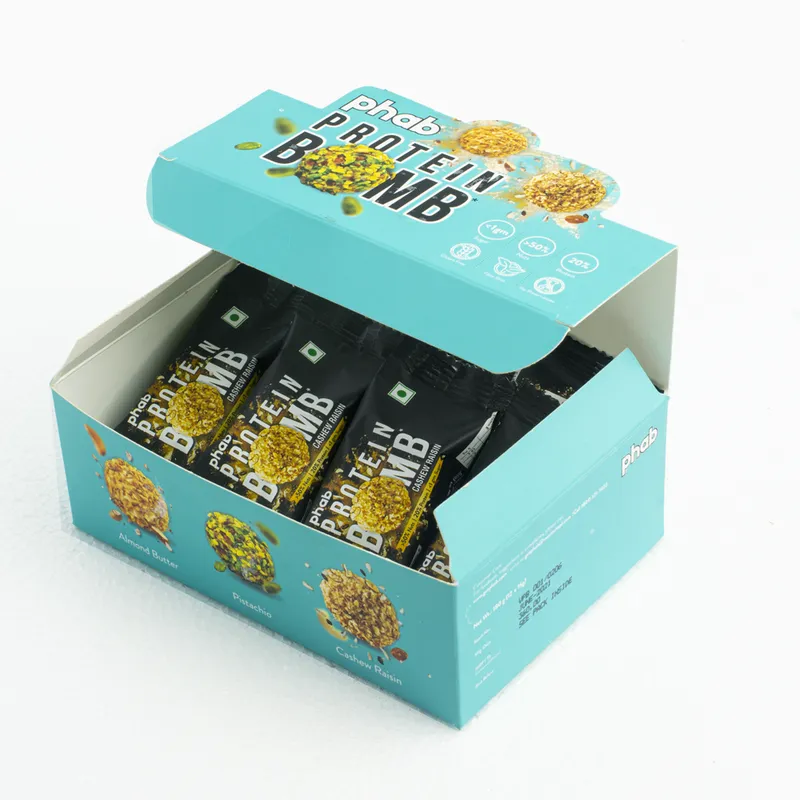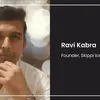From ice-creams to healthy snacks: How Havmor’s Ankit Chona is scaling up a nutrition brand
Ankit Chona was the Managing Director of the well-known ice cream chain, Havmor Ice Cream, from 2005 to 2018. When the business was sold off to a Korean major, Ankit decided to look for the next opportunity. This led to him launching a healthy snacks brand – Phab.
From 2005 to 2018, Ankit Chona was the Managing Director of the well-known ice cream chain, Havmor Ice Cream Limited (HIL). When the business was sold off to South Korean major Lotte Confectionary three years ago, Ankit decided to look for the next opportunity.
“Being in the ice-cream industry, we have grown up eating a lot of sugar. So, the natural thought process was to do something in the food industry only but keep the product healthy,” Ankit tells SMBStory, adding that he was also keen to explore something that was “futuristic”.
Consequently, he saw an immense market opportunity in the health and wellness space. That is how the idea of starting , a healthy snack brand, germinated.
Phab, which has 15 SKUs, started out in February 2020 by launching protein powders and gradually shifted to other items such as snack bars, protein shakes, and protein bombs. The brand claims that the products do not contain any preservatives, sugar or artificial sweeteners.
Product and the journey
While Phab is headquartered in Mumbai, all the products are formulated in the company’s R&D centre in Ahmedabad, and the ingredients are mostly imported from Europe (mainly Germany). The groundwork for starting the company began in 2019 and the products were ready for sale in February 2020.
Ankit got Phab’s products listed on ecommerce platforms such as , etc, and today, also sells through offline channels including 2,000 outlets across India. He says that offline has been their focus and 90 percent of the revenue comes from general and modern trade.
“Most startups today have an online-first strategy. Our strategy is just the opposite,” he says, adding, “We want to be present offline in the top 20 cities of India and gradually build our presence online.”
The brand’s strategy is to engage with the “customers on the ground”, “conduct trials”, and build on the product with an aim to convert offline customers to online buyers.
To date, $2 million have been invested by Ankit in the business.
Phab’s products start from Rs 200 and go up to Rs 2,000.

Operating amid pandemic and competition
A few weeks after Phab was launched, there was a nationwide lockdown owing to the COVID-19 pandemic, bringing the business to a complete standstill.
“In February, we did sales worth Rs 2 lakh, March was around Rs 5 lakh, but April, May, June and July were almost zero,” he recalls. He adds that the brand had “patches of recovery” in the last 20 months during the festive months.
In addition, the company also pivoted to other categories such as snack bars, protein shakes, and more. Deploying the strategy of expanding horizontally and increasing its basket of products was a “blessing” for the company, according to Ankit.
Today, the business is getting back on track. Phab closed November 2021 with revenues worth Rs 65 lakh and is slated to touch Rs 1 crore by March 2022, claims Ankit.
The pandemic has paved the way for greater opportunities in the “preventive healthcare” business, which includes supplements and healthy snacks. According to a report by Euromoniter, the global healthy snacks market is forecast to reach $98 billion by 2025, growing at a CAGR of 5.8 percent between 2020 and 2025. Another report by Glanbia Nutritionals noted that nuts, seeds and trail mixes continue to lead the market, with a revenue share of 41 percent followed by snack bars with 20 percent share.
Ankit believes that though the market is not too crowded, several players are now entering the ring. “The pie is also getting larger,” he quips.
India houses several brands such as Snackible, Snack Amor, TagZ, Amala Earth, Soulfull, Eat Better and others in the space. “Our differentiation comes in with the high-protein formulations devised for every product,” he adds. Going forward, the company is planning to introduce a sub-category of low-cost products priced below Rs 40. The intent behind this is to cater to the larger group audience who want to indulge in healthy snacking.
Learnings, entrepreneurship and the road ahead
For scaling the new business with vigour, Ankit often looks back to his days at Havmor and the learnings from that journey.
Havmor, the ice cream brand, was started in pre-independent India (1944) by Ankit’s grandfather, Satish Chona. His father scaled up the business before Ankit joined the company in 2005. The long-running business was sold off to Lotte in 2018.
The decision was not easy, says Ankit, adding, “We had made some significant investments and we felt that it is okay to cash in.”
The biggest takeaway from the Havmor days was to never confuse the customers and always listen to them.
“All the fancy things make a lot of noise but the real volumes come from the hinterlands,” he explains.
Another lesson from the old days he keeps in mind is to “manage the supply chain well.”
Shifting to a healthier category, Ankit wants to focus on nutritional value, taste, and pricing. “In the Havmor business, the taste was most important because it was an indulgent product.” With Phab, he says he is aware of the responsibility to balance all three aspects.
In the next three to four years, he is devoted to the goal of making Phab a Rs 100 crore brand. He wants to achieve this by introducing a barrage of products such as cookies, DIY powders, reaching 50 SKUs in the 12-18 months.
Ankit says that in his lifetime he wants to recreate the success of Havmor. “I have that drive and hopefully I'll be able to do it.”
Edited by Kanishk Singh









